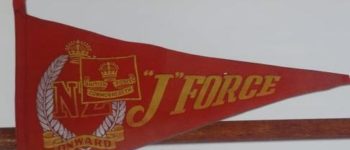1946: Jayforce
March 19, 2021
By AHNZ
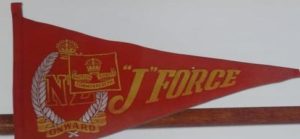 On 19 March, 1946, 75 Years ago, New Zealand joined the feast of Japan, the mighty whale felled on our Pacific rim by nuclear harpoon. The main body of the force joined the occupation on this day as ‘Jayforce.’
On 19 March, 1946, 75 Years ago, New Zealand joined the feast of Japan, the mighty whale felled on our Pacific rim by nuclear harpoon. The main body of the force joined the occupation on this day as ‘Jayforce.’
Thousands of young single male New Zealanders lounged around in Japan generally snooping on the citizens under the pretense of helping them be less…I don’t know…Japanese.
“They arrived in a country of the vanquished – a Japan destroyed, physically and psychologically.”
“They were unarmed, but we were armed, of course. We had to make sure that they were disbursed properly and make sure they were assimilated..”
“We thought they had earned it. When we first went over there we had no sympathy whatsoever for the Japenese.” – Kiwi J-Force veteran remembers his year in post-World War II Japan, Stuff (2019)
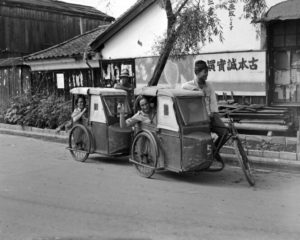 State History imagines the Japanese were thankful we made a 2 year tourist resort on top of their devastated 1000 year old civilisation. They issued commemorative pennants and medals to the brave Kiwis.
State History imagines the Japanese were thankful we made a 2 year tourist resort on top of their devastated 1000 year old civilisation. They issued commemorative pennants and medals to the brave Kiwis.
[image right: “New Zealand soldiers who recently arrived in Japan in the first J Force replacement draft are keen sight-seers. Here, some of the new arrivals,…see the sights of Yamaguchi [Japan] from one type of Japanese “taxi””- Ref. Alexander Turnbull Library
“Jayforce…their duties were not especially taxing, and in mid 1946 the men were replaced by volunteers, who wre engaged for a year. Altogether, about 12,000 served in Jayforce.” – Wolfe (2007)
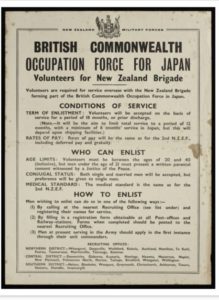 Many Japanese civilians feared the Allies would loot them and rape their women. That is, after all, the usual protocol of victors after they’ve won a war. It’s also what the Japanese State had told its people to think to help encourage them to fight to the last. There are accounts of the occupied forces doing just that. Young men with guns and a bit of power and the feeling of self-justification without criticism…you don’t need the Milgram Experiment to anticipate complications.
Many Japanese civilians feared the Allies would loot them and rape their women. That is, after all, the usual protocol of victors after they’ve won a war. It’s also what the Japanese State had told its people to think to help encourage them to fight to the last. There are accounts of the occupied forces doing just that. Young men with guns and a bit of power and the feeling of self-justification without criticism…you don’t need the Milgram Experiment to anticipate complications.
Our men were also immune from criticism, “Not only did Occupation censorship forbid criticism of the United States or other Allied nations, but the mention of censorship itself was forbidden…”the Occupation censorship was even more exasperating than Japanese military censorship had been because it insisted that all traces of censorship be concealed.”” – Donald Keene; Wiki
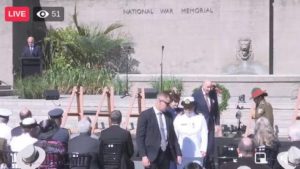 Our young Jforce men were raised on War, ready and expecting to be fighters. Instead, the energy of the keenest of them, who volunteered, was let loose on the Japanese civilians. I don’t assume that they were on their best behavior any more than the Americans. Of course, such infractions were censored and the history written by The State and Statists. So who knows how bad it got?
Our young Jforce men were raised on War, ready and expecting to be fighters. Instead, the energy of the keenest of them, who volunteered, was let loose on the Japanese civilians. I don’t assume that they were on their best behavior any more than the Americans. Of course, such infractions were censored and the history written by The State and Statists. So who knows how bad it got?
Apart from deliberately taking apart Japan’s productive economy (policy of “de-industrialisation”) and overseeing starvation and displacement, the cultural impact was huge. Sticking to the theme of sexual morals, one of the major trades that did experience growth in Japan was prostitution. The very conservative Japanese had never seen so many public displays of affection, their modesty circuits were burned out just seeing American soldiers kissing and holding hands with women let alone anything else. Having the door of their sexual morals kicked down, the unwilling Japanese had eroticism thrust upon them at a rate it had taken their invaders generations to acclimate to. If you ever hear stories about contemporary Japanese having outrageous fetishistic pornography it can be traced back to these roots.
—
Ref. With Honour, Our Army, Our Nation, Our History, Richard Wolfe (2007)
Image ref. Image capture from Pukeahu National War Memorial Park livestream of 75th anniversary of Jforce; Facebook (Mar 2021)
 Like Comment Share
Like Comment Share

